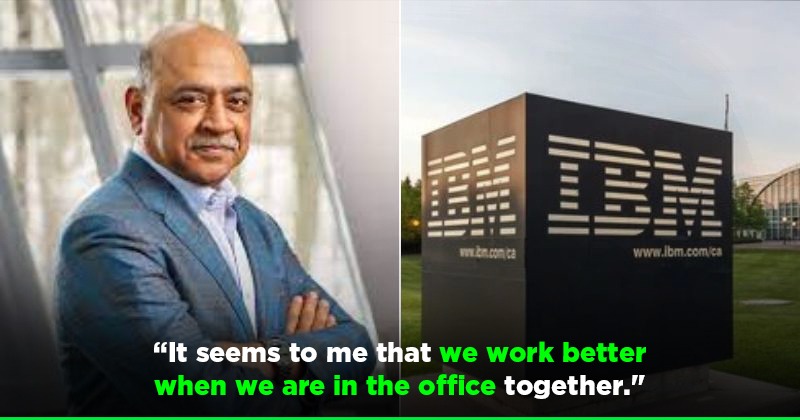At a time when many companies are still unsure whether to continue remote work, adopt hybrid mode, or go back to completely working from the office, IBM’s CEO has shared his views.
IBM CEO Arvind Krishna has a message for his 260,000 employees: “Remote work can be hazardous to your career.”
Jump To
![]()
Warning Against Remote Work

indiatimes
The CEO of IBM, whose American tech firm has benefited from the rise of remote work, said he’s not forcing any staffers to come into the office just yet, but those who don’t would be hard-pressed to get promoted, especially into managerial roles.
“Being a people manager when you’re remote is just tough because if you’re managing people, you need to be able to see them once in a while,” he said in an interview earlier this week in New York, as per a Bloomberg report.
“It doesn’t need to be every minute. You don’t need to function under those old ‘Everybody’s under my eye’ kind of rules, but at least sometimes.”
IBM CEO Krishna’s comments add to the growing debate over the merits of remote versus in-person work. “It seems to me that we work better when we are together in person,” said Krishna, who described the company’s return-to-office policy as “we encourage you to come in, we expect you to come in, we want you to come in.” Three days a week is the number they encourage, he added.
Also Read: Employees Should Have The Freedom To Work Remotely, From Offices Or In Hybrid Setups, Says Dell CEO
“Remote Work Suitable For Specific Roles”

ibm
While about 80% of IBM’s employees work from home at least some of the time, Krishna said remote arrangements are best suited for specific “individual contributor” roles like customer service or software programmers. “In the short term you probably can be equally productive, but your career does suffer,” he said. “Moving from there to another role is probably less likely because nobody’s observing them in another context. It will be tougher. Not impossible, but probably a lot tougher. ”
Krishna reportedly said people make a choice to work remotely, but it need not be “a forever choice — it could be a choice based on convenience or circumstance.” He said that remote workers don’t learn how to do things like deal with a difficult client or make trade-offs when designing a new product. “I don’t understand how to do all that remotely,” he said.
Also Read: Work From Home To Soon Become A Legal Right In The Netherlands
For more such interesting content and the latest financial news, keep reading Worth. Click here.


